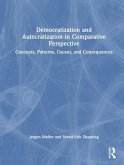Advancing an intersectional theory of hegemony, this book shows how various power relations interact through capitalist structures of othering. Going beyond the usual critiques of capitalism, it analyses the market itself as a principal cause of various forms of externalisation and domination. The book therefore calls for a dismantling of the market and its competitive economic structures through a transformation of the economy from below, greater democratisation (not least for the empowerment of suppressed identities), and the creation of commons as spaces based on inclusion rather than exclusion.
In doing so, Overcoming Exploitation and Externalisation argues that co-operative possibilities can emerge for the transformation of ourselves and our society. It will therefore appeal to scholars and students of social and political theory with interests in the commons and alternatives to capitalism.
In doing so, Overcoming Exploitation and Externalisation argues that co-operative possibilities can emerge for the transformation of ourselves and our society. It will therefore appeal to scholars and students of social and political theory with interests in the commons and alternatives to capitalism.
This book empowers all those who are in search of alternatives. Friederike Habermann sheds light on the false premises of liberal economic theory and the extractivist character of market economy. This book provides intersectional theory of hegemony which is key for understanding how the gendered and racialized subject is entangled with the economy. It offers intersectional and emancipatory pathways for non-extractivist, relational and embodied ways of life.
Gülay Çaglar, Professor of Gender and Diversity,Otto-Suhr-Institute of Political Science, Freie Universität Berlin, Germany
This is a refreshing and challenging book. It confronts the only scientific question that is left to us, how to get rid of capitalism (or market society), and in the process it brings together an impressive range of sources and ways of thinking and struggling. It opens doors, suggests directions, stirs us up. Just what is so desperately needed.
John Holloway, Professor of Sociology, Institute for Humanities and Social Sciences, Autonomous University of Puebla, Mexico
Friederike Habermann has given the world a wonderful gift in Overcoming Exploitation and Externalization. Not only has she analysed and distilled two hundred years of Marxist, decolonial, and feminist social theorists, but she has brought a unique and piercing insight that exceeds them all. This is the work of a giant standing on the shoulders of giants.
Raj Patel, Research Professor, Lyndon B. Johnson School of Public Affairs, University of Texas at Austin, USA
This book actually delivers what the title promises. It makes the theory and practice of intersectional transformation conceivable. This is critical feminism as it is urgently needed.
Uta Ruppert, Professor of Political Science and Political Sociology and Chair of Global South and Gender Studies, Goethe University Frankfurt, Germany
Friederike Habermann combines her decades of activist experience on global and local levels and her profound knowledge of economic, Marxist, feminist, poststructuralist and postcolonial theory to weave an intersectional theory of hegemony - a theory which allows us to perceive of the huge task of overcoming global capitalism not as something deferred to a utopian future, but as a practical work we can tackle every day in our lives. A thoughtful manual for revolution through commoning which highlights our agency while not ignoring the structures, spreading hope and courage.
Aram Ziai, Professor of Development Policy and Postcolonial Studies, University of Kassel, Germany
Gülay Çaglar, Professor of Gender and Diversity,Otto-Suhr-Institute of Political Science, Freie Universität Berlin, Germany
This is a refreshing and challenging book. It confronts the only scientific question that is left to us, how to get rid of capitalism (or market society), and in the process it brings together an impressive range of sources and ways of thinking and struggling. It opens doors, suggests directions, stirs us up. Just what is so desperately needed.
John Holloway, Professor of Sociology, Institute for Humanities and Social Sciences, Autonomous University of Puebla, Mexico
Friederike Habermann has given the world a wonderful gift in Overcoming Exploitation and Externalization. Not only has she analysed and distilled two hundred years of Marxist, decolonial, and feminist social theorists, but she has brought a unique and piercing insight that exceeds them all. This is the work of a giant standing on the shoulders of giants.
Raj Patel, Research Professor, Lyndon B. Johnson School of Public Affairs, University of Texas at Austin, USA
This book actually delivers what the title promises. It makes the theory and practice of intersectional transformation conceivable. This is critical feminism as it is urgently needed.
Uta Ruppert, Professor of Political Science and Political Sociology and Chair of Global South and Gender Studies, Goethe University Frankfurt, Germany
Friederike Habermann combines her decades of activist experience on global and local levels and her profound knowledge of economic, Marxist, feminist, poststructuralist and postcolonial theory to weave an intersectional theory of hegemony - a theory which allows us to perceive of the huge task of overcoming global capitalism not as something deferred to a utopian future, but as a practical work we can tackle every day in our lives. A thoughtful manual for revolution through commoning which highlights our agency while not ignoring the structures, spreading hope and courage.
Aram Ziai, Professor of Development Policy and Postcolonial Studies, University of Kassel, Germany









